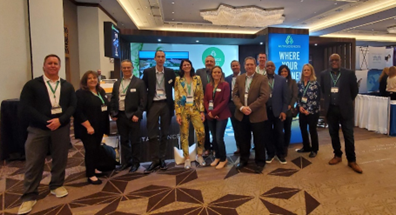Highlights From the 2024 American College of Toxicology 45th Annual Meeting

My fellow Altasciences colleagues and I recently attended the 2024 annual American College of Toxicology (ACT) meeting in Austin, Texas. As was the case with my first ACT meeting in 2023, it was a pleasure to have the opportunity to interact with co-workers such as Ian Vanterpool, General Manager of Altasciences’ preclinical facilities (Colombia, MO), Narine Lalayeva, Director, Safety Assessments (Seattle, WA), Dr. Alexander Waltz, Senior Director, Safety Assessments (Scranton, PA), and Gabriela Campoy, Study Director (Seattle, WA).
The ACT meeting is targeted primarily at industry professionals. This, I feel, fosters meaningful collaboration and discussion about the current state of new and upcoming topics in toxicology—something I found especially rewarding.
Nonclinical Immunotoxicity Assessment: State of Science and Future Directions
Among the many subjects covered at ACT this year, gene therapy was one of the hottest topics, including alternative approaches to adeno-associated viral vectors (AAV) like lipid nanoparticles (LNPs) and metal nanoparticles (MNPs)— since AAV prescreening has become increasingly challenging in nonhuman primate (NHP) toxicology studies.
Some of the more interesting discussions I participated in stemmed from the “Nonclinical Immunotoxicity Assessment: State of Science and Future Directions” course, during which experts from the FDA, industry, and academia presented established and novel ways to assess immunotoxicity in preclinical drug discovery.
The session also included a detailed overview of the 2023 FDA guidance titled "Nonclinical Evaluation of the Immunotoxic Potential of Pharmaceuticals", which replaced the 2002 CDER guidance. This recent guide addresses several advancements within the field of immunotoxicology, including new considerations for the evaluation of immunostimulation, dermal sensitization, and developmental immunotoxicity.
Juvenile Nonhuman Primates for Gene Therapy Research: Use of Immunopathology Data to Adjust Testing Ages and the 3Rs
Another meeting, headed by Altasciences’ Vice President of Toxicology, Dr. Norbert Makori, discussed the limits of testing with juvenile NHPs in toxicology studies. Here, we discussed our own developed data around the age equivalence of NHPs compared to human counterparts, as well as testing with lower blood volumes, the challenge of blood sampling, and the use of sedatives and the more rigorous monitoring needs when testing with younger NHPs.

Our study found evidence that using older NHPs in studies is still feasible for many sponsors in nonclinical scenarios. Due to the difficulty in sourcing juvenile NHPs, and the FDA’s guidances around recommending juvenile NHPs in preclinical research, there was a lot of interest in this particular study.
Publishable data, while still preliminary, represents a huge opportunity for sponsors looking for more efficient ways to package their INDs while maintaining efficacy through each study cycle.
Overall, this session proved to be a key topic of discussion at the ACT meeting throughout the week—garnering significant interest and sparking insightful conversations among the attendees.
My Final Thoughts
The conference ended on a high with the Altasciences party in the heart of Austin’s iconic Sixth Street. It was a fantastic opportunity to strengthen relationships with current clients, make new connections, and spend time with colleagues. I am looking forward to meeting you all again next year!
You can view the poster presentations from ACT 2024 in our Resource Center. And, of course, my team and I would be happy to answer any of your questions and discuss your gene therapy program; contact me or one of our other experts today!

About the Author

Dr. Francesca Barone has been with Altasciences since 2023. As Site Director she is responsible for research operations, including in vivo study management, technical operations, and veterinary services, and works closely with clients in the early phases of drug development. Prior to joining Altasciences, she completed a postdoctoral fellowship at the National Institute of Health, and worked extensively with large animal models in biomedical research, leading project design, implementation, and IND applications.
This blog was originally published in January, 2025